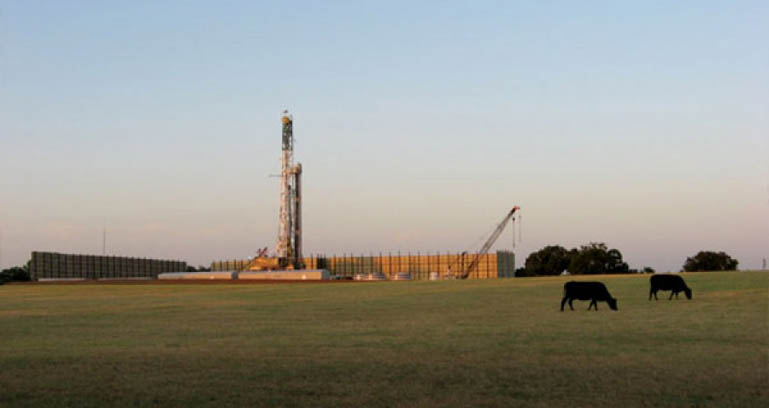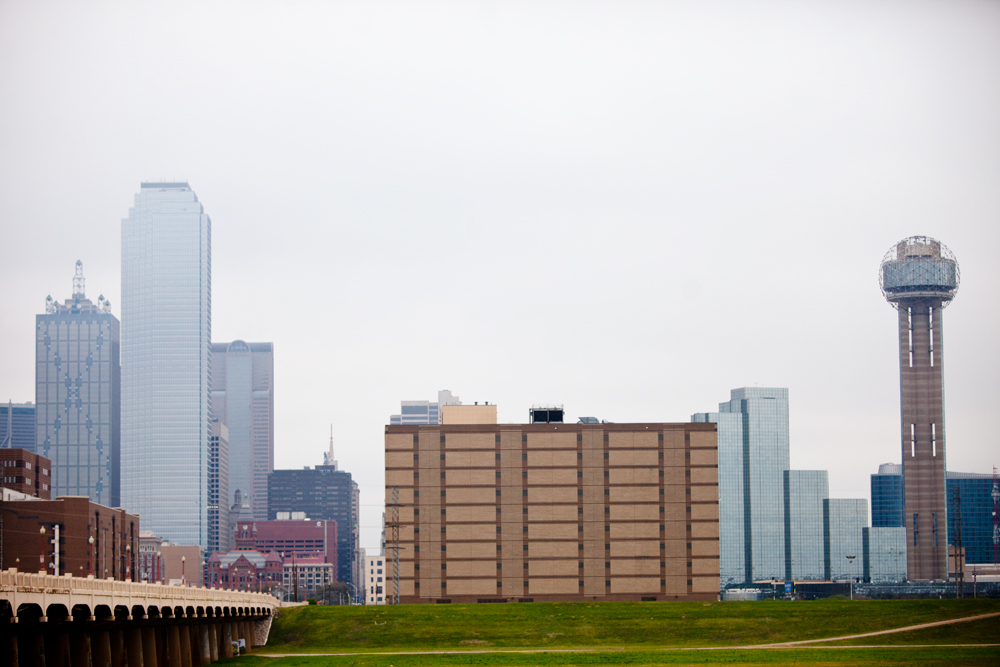
Another Victory for Fracking Opponents in Dallas

Above: A Chesapeake Energy contractor drills for natural gas northeast of Cleburne.
On Wednesday, the Dallas City Council capped off years of debate between residents, council members, oil and gas advocates and environmentalists by passing one of the most restrictive natural gas drilling ordinances in North Texas’ Barnett Shale. The ordinance prohibits drilling within 1,500 feet of homes, schools, churches and other protected sites.
Dallas’ fracking fight came to a head over the past two years, when the city council considered granting Trinity East Energy permits to drill on unused city park land it had leased. Trinity had already forked over $19 million for the leases, which the city promptly spent, but officials played hot potato with the decision before a zoning body, the City Plan Commission, killed the drilling permits in March. One month earlier, a secret deal between City Manager Mary Suhm and Trinity East had surfaced, angering citizens and some city council members.
While taking a series of inconclusive votes, city officials pointed to one reason they couldn’t really make a decision: Dallas’ gas drilling ordinance hadn’t been updated since 2007, when much less was known about fracking. In 2011 the city created a task force to study the health and safety risks associated with fracking and update the ordinance.
The task force completed its job in March 2012, recommending 1,000-foot setbacks for gas wells from most locations. Neighborhood groups thought 1,000 feet was too close, and the Plan Commission later recommended extending the setback to 1,500 feet for homes, schools, churches, some retail spaces and water wells.
Today, the city council passed an amendment by Scott Griggs, one of the council’s most vocal fracking opponents, allowing the council to reduce setbacks on a case-by-case basis as companies apply for drilling permits.
Griggs called it a compromise to give the city more flexibility while allowing companies to drill on some sites, but council member Lee Kleinman disagreed. “We might as well save a lot of paper and write a one-line ordinance that says there will be no gas drilling in the city of Dallas,” Kleinman said. “That would be a much easier ordinance to have.”
Council member Vonciel Jones Hill, who also voted against Griggs’ amendment, doubted the need for any setback requirements. She said fracking opponents haven’t relied on sound science, and that the distance between wells and buildings should always be decided on a case-by-case basis.
In the end Griggs’ amendment—and what some are calling the “de facto fracking ban”—passed nine to six.
Jim Schermbeck, of the North Texas environmental group Downwinders at Risk, said Dallas now provides an alternative to frack-friendly Fort Worth on gas drilling regulation in the Barnett Shale. He told the Observer that today’s vote is a huge victory for the environmental movement in Dallas. “There’s a feeling that environmentalists are coming into their own, in terms of political power at the local level in Dallas, in ways they never have before.”


